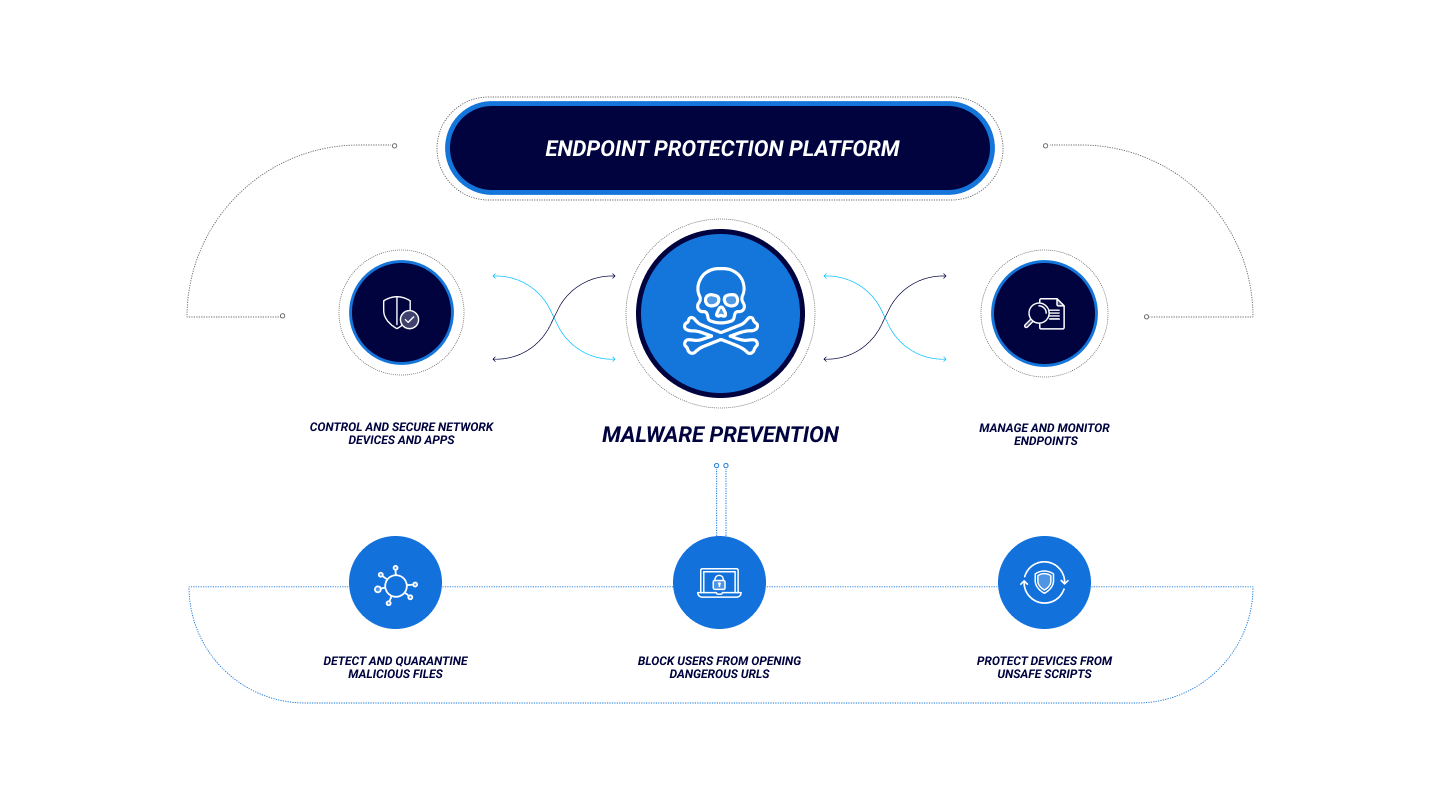What Is an Endpoint Protection Platform?

EPP Capabilities
According to Gartner, an EPP should “prevent file-based malware attacks, detect malicious activity, and provide the investigation and remediation capabilities needed to respond to dynamic security incidents and alerts.”
An EPP needs to do the following:
Prevent Malware from Executing
The primary function of an EPP is to prevent cyberattacks. EPPs provide this prevention via multiple technologies that can:
- Detect and quarantine malicious files that exploit memory vulnerabilities.
- Block users from opening dangerous URLs or visiting spoofing pages that mimick those of legitimate websites.
- Protect devices from malicious scripts and script paths.
Control and Secure Network Devices and Applications
Provide Visibility and Management
EPP Features
In addition to core functionality, EPPs should have features such as:
Sideloaded application detection to ensure apps loaded onto mobile devices are scanned and malware is prohibited from running.
Phishing and malicious URL detection to prohibit users from accessing dangerous websites or sites with embedded phishing elements.
Dashboard reporting to provide end-user monitoring and real-time alerting through a centralized console for quick remediation. Cloud-enabled EPPs enable security teams to monitor and manage endpoint security from anywhere.
Integration with other endpoint security and enterprise network tools, including EDR, Extended Detection and Response (XDR), and mobile device management (MDM) solutions.
Offline protection to ward off malware even when devices aren’t connected to the Internet. Although EPPs should be cloud-based, malware prevention technology should be localized at the endpoints to prevent cyberattacks when devices are offline.
Artificial intelligence (AI) and machine learning (ML) to prevent new and evolving cyberthreats based on file behavior and patterns.
Benefits of EPP
Stopping Ransomware
Simplified Management
Time and Cost Savings
FAQ
What is an EPP?
An Endpoint Protection Platform (EPP) is a cybersecurity solution deployed to endpoint devices to detect malicious activity, prevent malware attacks and respond to cyberattacks and alerts.
What is the difference between EPP and EDR?
EPPs focus on preventing threats at a network’s perimeter, whereas EDR solutions are designed to detect and identify advanced cyberthreats an EPP doesn’t filter.